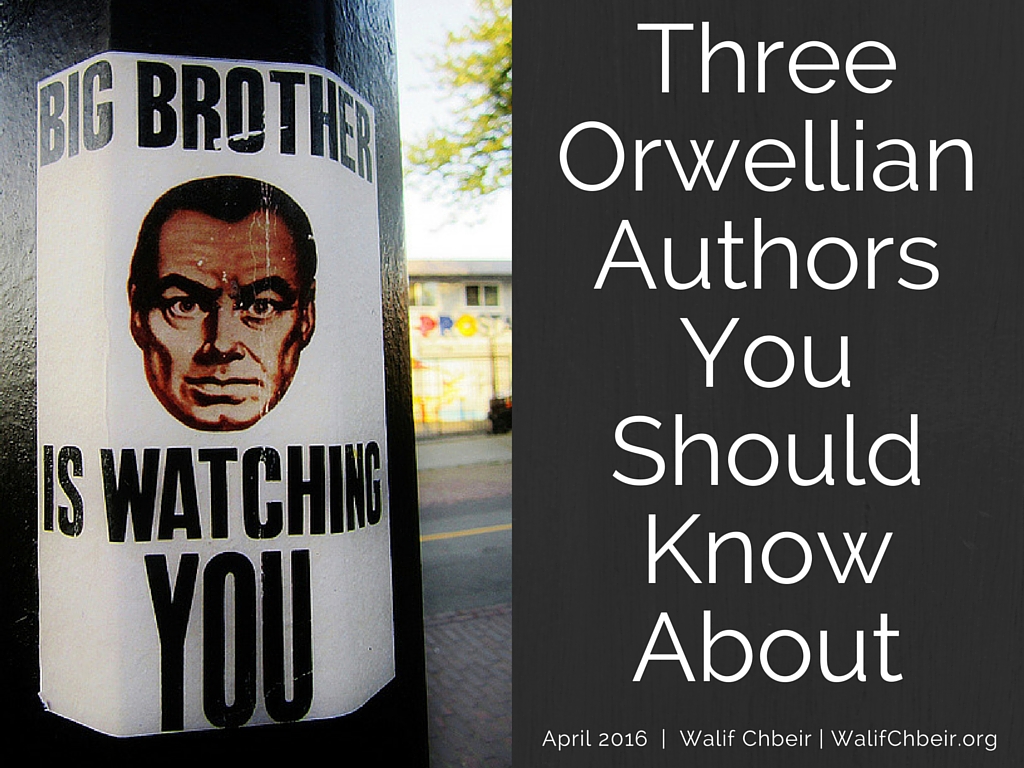
George Orwell is hands-down one of the most brilliant writers in England’s rich history of literature. Known mostly for his dystopian novels “1984” and “Animal Farm”, Orwell’s witty writing style, intelligence, and penchant for social justice and in-depth analysis of life make his works incredibly interesting reads.
His writing was so influential that it spawned a the word “Orwellian,” defined as a “situation, idea, or societal condition that George Orwell identified as being destructive to the welfare of a free and open society.” So while the three authors on this list might not all be as anti-authoritarian as Orwell famously was, they do write in similar styles.
Unfortunately for fans of great literature, Orwell passed away quite some time ago, and so the well of his works is bound to run dry for avid fans. Despite having written quite a few works during his time (233, to be precise), it is possible to exhaust all viable options and be left wondering “what else can I read?”
Luckily for fans of Orwell’s work, there are other authors with similar style and knack for subtle humor that he captured so well. Here are just a few.
Aldous Huxley
Another English writer, Huxley is known for his defining work “Brave New World,” which like Orwell’s “1984” examined and criticized modern society through the lense of a faux-utopian future. Novels like Huxley’s “Brave New World” have become staples in high school English classes because of the relevance of the themes and lasting impact they can have still today.
Despite being known primarily for his lengthier works, Huxley also penned many essays with wide-ranging subjects. “The Doors of Perception” details a first-person account of his use of the psychedelic drug mescaline, while “Heaven and Hell” details the apparent “regions of the brain” that one can unlock to open the mind to new and very different experiences.
Defining Work(s) That You Should Read: Brave New World
Kurt Vonnegut
Vonnegut has a very similar style to Orwell in that his novels feature tidbits of dark humor (Vonnegut more frequently than Orwell, for sure) and commentaries on modern society. Vonnegut is known mostly for his semi-autobiographical work “Slaughterhouse Five”, which touches on Vonnegut’s involvement with the firebombing of Dresden during World War II with a time-traveling, alien-filled twist. Vonnegut’s works are often funny enough to make you laugh but well-written enough to be used as an example in the classroom on how to perfect the morose sense of humor that defined Vonnegut.
Defining Work(s) that You Should Read: Slaughterhouse Five, Breakfast of Champions
Ernest Hemingway
Another favorite author of mine, Hemingway’s list of works doesn’t run as long as those of Orwell or Vonnegut, but they’re just as impactful. Two dominant themes in Hemingway’s works are war and loss, themes also touched on by the above authors. While Vonnegut seemed to avoid allowing his characters to fall into the cliche of hypermasculinity, Hemingway actively touched on it, often dealing with emasculation in his works.
Defining Work that You Should Read: A Farewell to Arms
While few writers can capture the flow and style of George Orwell and his capstone works, there are other authors with a wealth of works available that present similar–but different–styles. Chances are, if you appreciate George Orwell, pick up a copy of “Slaughterhouse Five” or “Brave New World,” and you’ll have trouble putting it back down.
